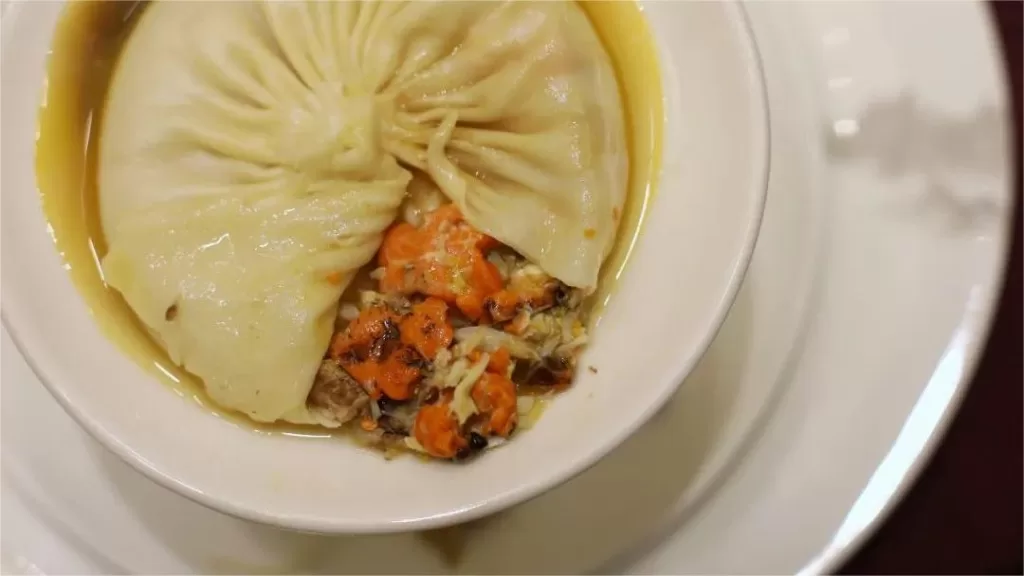Crab Soup Dumplings (Xiehuang Tangbao)


Crab Soup Dumplings, known as “xiehuang tangbao (蟹黄汤包),” are a traditional delicacy hailing from the Jiangsu province in China. Renowned for their meticulous preparation, the filling comprises crab roe and crab meat, while the broth is made from authentic chicken soup. The crafting of these dumplings involves a sublime culinary technique and requires key ingredients such as live Chinese mitten crabs, hens, pork skin, high-gluten flour, among others.
These delectable dumplings have a rich history, with their origins traced back to the Three Kingdoms period. By the Ming and Qing dynasties, they had already gained significant acclaim. What sets them apart is their paper-thin skin that delicately breaks at the slightest touch, earning them the reputation of being “exquisite” in preparation, “beautiful” in appearance, and “unique” in eating experience. Among the most famous varieties are the Tai Xing Qu Xia Crab Soup Dumplings, Nanjing Long Pao Crab Soup Dumplings, Jing Jiang Crab Soup Dumplings, Zhen Jiang Yan Chun Crab Soup Dumplings, and Huaian Wen Lou Crab Soup Dumplings. Nanjing hosts the Long Pao Crab Soup Dumpling Food Culture Festival annually.
To savor these dumplings, a straw is used to puncture the thin skin, allowing the savory broth to be sucked out. The delicate skin is then dipped in vinegar before consumption. Alternatively, one can use their teeth to create a small opening in the thin skin, followed by sucking out the flavorful broth. It’s crucial not to bite into the dumpling directly, as this may cause the broth to spill.
The Long Pao Crab Soup Dumpling has a history spanning nearly two hundred years and is believed to have been presented as a tribute to the imperial court. Its origins date back to the Qianlong period of the Qing Dynasty. Legend has it that during Qianlong’s six visits to the Jiangnan region, he tasted the dumplings made by the local residents, featuring a filling of crab roe, crab meat, and other ingredients. Delighted by the flavors, he praised them as “delicious” repeatedly. The residents, overjoyed by the emperor’s approval, began calling these dumplings “Qianlong Soup Dumplings.”
In the late Qing Dynasty, Master Tao Ji from Liuhe in Nanjing founded “Tai Ping Chun Restaurant,” inheriting the traditional craftsmanship of Qianlong Soup Dumplings and further refining the filling with additional ingredients. The dish was then renamed “Crab Soup Dumplings.” In the 1930s, Tao Ji passed on this culinary art to Qin Youfa, Yi Chunbing, and Shen Laoer, who continued to operate successfully, earning acclaim from customers. In the 1960s, Zhou Yuchun, a successor of Qin Youfa, took over “Lao Hong Yuan” in Nanjing, preserving and developing the craft of Crab Soup Dumplings.